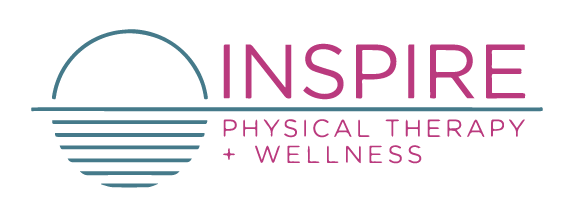You’ll improve your physical health through seven evidence-based strategies: maintaining consistent sleep-wake cycles, performing 30 minutes of daily movement, consuming adequate water (2.7-3.7L), choosing nutrient-dense whole foods, practicing stress management techniques, scheduling regular health screenings, and incorporating resistance training. These interventions work synergistically to boost metabolic function, cardiovascular health, and cellular repair mechanisms. The thorough approach outlined below provides specific protocols for maximizing each strategy’s effectiveness.
Key Takeaways
- Maintain a consistent sleep schedule of 7-9 hours daily, keeping the same bedtime and wake time even on weekends.
- Exercise for at least 30 minutes daily through activities like walking, swimming, or cycling to improve cardiovascular health.
- Drink adequate water throughout the day, aiming for 2.7-3.7 liters depending on your activity level and climate.
- Eat a balanced diet rich in whole grains, lean proteins, fruits, and vegetables while avoiding processed foods.
- Practice stress management through regular meditation, deep breathing exercises, or progressive muscle relaxation.
Establish a Consistent Sleep Schedule

Three key factors regulate your sleep-wake cycle: circadian rhythm, sleep pressure, and environmental cues. To enhance these factors, you’ll need to maintain consistent sleep and wake times, even on weekends. This regularity helps synchronize your body’s internal clock with external day-night cycles.
Create an ideal sleep environment by keeping your bedroom dark, quiet, and cool (between 60-67°F). You’ll want to establish a bedtime routine that signals to your brain it’s time to wind down. This should begin 30-60 minutes before sleep and might include dimming lights, avoiding screens, and engaging in calming activities. Your body responds best to predictable patterns, so maintaining these practices consistently will strengthen your sleep-wake cycle and improve your sleep quality over time.
Move Your Body for 30 Minutes Daily

While quality sleep forms the foundation of health, physical activity amplifies its benefits and creates a positive feedback loop for all-encompassing wellness. You’ll find that dedicating 30 minutes daily to movement greatly improves cardiovascular health, metabolic function, and musculoskeletal strength.
| Activity Type | Caloric Burn/30min | Benefits |
|---|---|---|
| Brisk Walking | 150-200 | Low impact, suitable for beginners |
| Swimming | 200-250 | Full-body workout, joint-friendly |
| Group Exercises | 200-300 | Social support, accountability |
| Cycling | 200-250 | Cardiovascular endurance, leg strength |
| Outdoor Activities | 150-300 | Vitamin D exposure, mental refreshment |
Select activities that align with your fitness level and preferences. Whether you choose outdoor activities like hiking or structured group exercises, consistency matters more than intensity. Start gradually and increase duration as your endurance improves.
Stay Hydrated With Proper Water Intake

Maintaining adequate hydration is fundamental for ideal physiological function, as water comprises approximately 60% of the human body. You’ll need to consume 2.7-3.7 liters daily, depending on your sex, activity level, and climate conditions.
Essential hydration tips include carrying a reusable water bottle, setting hourly intake reminders, and monitoring your urine color pale yellow indicates ideal hydration. Water benefits extend beyond basic survival: it regulates body temperature, lubricates joints, delivers nutrients to cells, and maintains cognitive function.
If you’re struggling to meet your daily water requirements, try infusing water with citrus or cucumber, consuming water-rich foods like watermelon and celery, and drinking a glass immediately upon waking. Track your intake using smartphone apps or marked containers to guarantee you’re meeting your hydration goals.
Choose Nutrient-Rich Whole Foods
In contrast to processed alternatives, nutrient-rich whole foods provide essential vitamins, minerals, and bioactive compounds that support ideal cellular function. You’ll improve your nutrient density by selecting unrefined grains, lean proteins, fresh fruits, vegetables, and legumes. These whole food benefits include boosted immune function, improved metabolic health, and better cellular repair.
To maximize nutritional intake, you’ll want to focus on colorful produce varieties, as they contain diverse phytonutrients and antioxidants. Replace refined carbohydrates with whole grains like quinoa, brown rice, and oats. Select grass-fed meats, wild-caught fish, and plant-based proteins to guarantee superior amino acid profiles. By choosing foods in their natural state, you’ll avoid artificial additives while supporting your body’s fundamental biological processes.
Practice Stress Management Techniques
Stress management plays an essential role in maintaining physical well-being through its direct impact on hormonal regulation, immune function, and cardiovascular health. You’ll find that implementing evidence-based stress reduction techniques can greatly lower cortisol levels and decrease inflammatory markers in your body.
Managing stress effectively protects your physical health by regulating hormones, boosting immunity, and supporting heart function through proven relaxation methods.
Key stress management techniques you should incorporate daily:
- Practice mindfulness meditation for 10-15 minutes, focusing on present-moment awareness
- Perform deep breathing exercises using the 4-7-8 technique (inhale for 4, hold for 7, exhale for 8 counts)
- Engage in progressive muscle relaxation before bedtime to reduce physical tension
- Schedule regular breaks during work hours to prevent stress accumulation
These scientifically-validated methods help activate your parasympathetic nervous system, reducing blood pressure, heart rate, and muscle tension while improving your body’s stress response mechanisms.
Schedule Regular Health Check-ups
Regular health screenings and preventive check-ups serve as critical components in early disease detection and ideal health maintenance. You’ll need to establish a consistent schedule with your healthcare provider based on your stage of life, gender, family history, and risk factors.
Essential health screenings include blood pressure monitoring, cholesterol testing, diabetes screening, and cancer screenings like mammograms, colonoscopies, and prostate exams. Don’t skip annual physical examinations, which provide baseline measurements and identify potential health concerns before they become serious issues.
Preventive measures through regular check-ups can greatly reduce your risk of developing chronic conditions. Schedule dental cleanings every six months, eye examinations annually, and immunizations as recommended by medical guidelines. Document your medical history and maintain records of all screenings to guarantee thorough healthcare tracking.
Build Strength Through Resistance Training
While cardiovascular exercise improves endurance, resistance training plays a vital role in developing muscular strength, bone density, and metabolic health. You’ll need to incorporate progressive overload to continually challenge your muscles and promote adaptation. Start with bodyweight exercises if you’re new to resistance training, then gradually advance to weighted movements.
For best results, consider these evidence-based training principles:
- Train each major muscle group 2-3 times per week
- Allow 48 hours between sessions for adequate muscle recovery
- Perform 2-4 sets of 8-12 repetitions per exercise
- Increase weight by 2-5% when you can complete all sets with proper form
Remember to focus on proper technique and controlled movements to minimize injury risk and enhance muscular engagement during each exercise session.
Frequently Asked Questions
How Long Does It Take to See Noticeable Results From Lifestyle Changes?
You’ll typically notice initial changes within 4-8 weeks when maintaining lifestyle consistency, though timeframe expectations vary by individual and specific changes made. You’ll often see cardiovascular improvements within 2-3 weeks, strength gains in 6-8 weeks, and weight changes in 4-6 weeks. Mental clarity and energy levels may improve within days. Remember, sustainable results require long-term adherence, and genetics, maturity, and baseline health influence your progress timeline.
What Are the Best Supplements to Support Overall Physical Health?
You’ll find that a balanced diet typically provides most essential nutrients, but certain supplements can fill nutritional gaps. Key supplements include vitamin D for immune function, omega-3s for heart health, and magnesium for muscle and nerve function. Consider B-complex vitamins for energy metabolism and calcium for bone strength. Always consult your healthcare provider before starting supplements, as they’ll help determine your specific needs based on blood work and health status.
Can Morning Sunlight Exposure Improve Physical Well-Being?
Yes, morning sunlight exposure offers significant health benefits. When you get 10-30 minutes of direct sunlight before 10 AM, you’ll regulate your circadian rhythm, elevate vitamin D production, and improve serotonin levels. Making sunlight exposure part of your morning routine can enhance sleep quality, bone health, and mood regulation. Research shows it’ll also help control cortisol levels, strengthen your immune system, and increase your energy throughout the day.
How Does Social Connection Impact Physical Health and Wellness?
Social support and community engagement directly affect your physiological health through multiple mechanisms. When you maintain strong social connections, your body produces higher levels of oxytocin and reduces cortisol production, leading to decreased inflammation and improved immune function. You’ll experience lower blood pressure, better cardiovascular health, and reduced risk of chronic diseases. Research shows that people with strong social networks have longer life expectancy and faster recovery from illness.
Should I Track My Heart Rate Variability to Monitor Health Progress?
Tracking your heart rate variability (HRV) can provide valuable insights into your autonomic nervous system function and comprehensive health progress. HRV measurements indicate how well your body adapts to stress, exercise, and recovery. You’ll want to monitor your HRV consistently, ideally at the same time each day, to establish reliable baseline data. Research suggests that higher HRV often correlates with better cardiovascular fitness, stress resilience, and general wellness.





